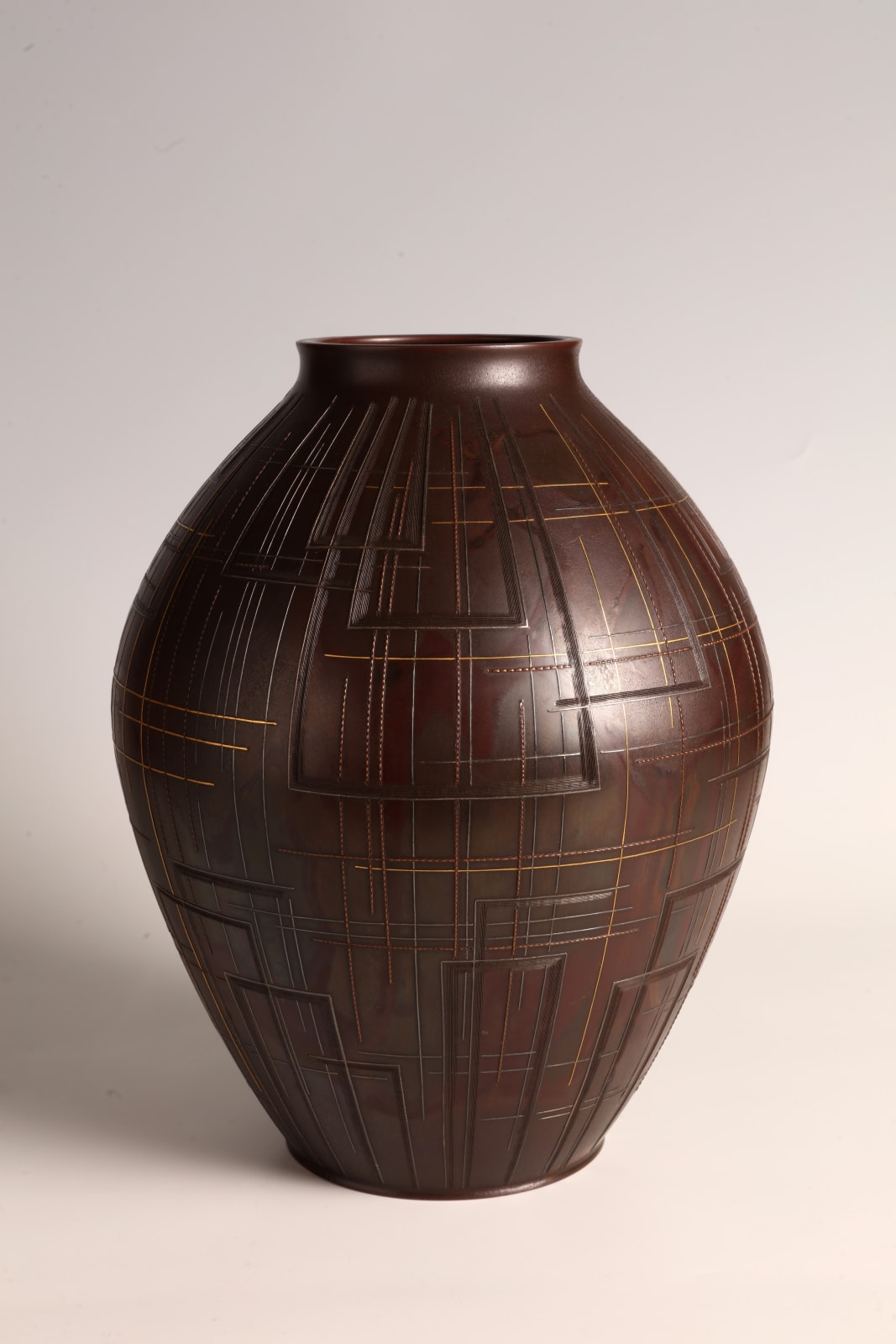Hannya Kankei
Patinated and Inlaid Bronze Flower Vase, 1980s
Cast bronze with geometric chiseling and gold, silver and copper inlays
Size 14 x 11¼ x 11¼ in. (35.5 x 29 x 29 cm)
T-4972
Further images
Born in Takaoka City, Toyama Prefecture, Hannya Kankei is heir to an artistic lineage that traces its origins to the early seventeenth century, when his ancestor was one of several...
Born in Takaoka City, Toyama Prefecture, Hannya Kankei is heir to an artistic lineage that traces its origins to the early seventeenth century, when his ancestor was one of several metal artists summoned to Kaga Province (present-day Ishikawa Prefecture) by Toshinaga (1652–1614) second head of the powerful and wealthy Maeda clan. The Hannya family later moved to Takaoka, where a high-quality metalwork industry flourished during the Meiji era (1868-1912).
A full member of the Nihon Kōgeikai (Japan Craft Association) since 1972, Hannya Kankei has won numerous awards at the Nihon Kinkō Shinsakuten, an annual exhibition of new work in metal. Alongside his accomplished work in contemporary style, he has carried out commissions from the Imperial Household Agency for replicas of ancient works in bronze from the eighth-century Shōsōin imperial repository.
Signed Ryūkō; stamped seal Kankei. The vase comes with its original paulownia-wood tomobako storage box inscribed Chūdō kabin (Cast bronze flower vase), signed Ryūkō saku (Made by Ryūkō) and sealed Ryūkō; with a further introductory seal Tokusen (Special Selection)
A full member of the Nihon Kōgeikai (Japan Craft Association) since 1972, Hannya Kankei has won numerous awards at the Nihon Kinkō Shinsakuten, an annual exhibition of new work in metal. Alongside his accomplished work in contemporary style, he has carried out commissions from the Imperial Household Agency for replicas of ancient works in bronze from the eighth-century Shōsōin imperial repository.
Signed Ryūkō; stamped seal Kankei. The vase comes with its original paulownia-wood tomobako storage box inscribed Chūdō kabin (Cast bronze flower vase), signed Ryūkō saku (Made by Ryūkō) and sealed Ryūkō; with a further introductory seal Tokusen (Special Selection)
1
of
7











